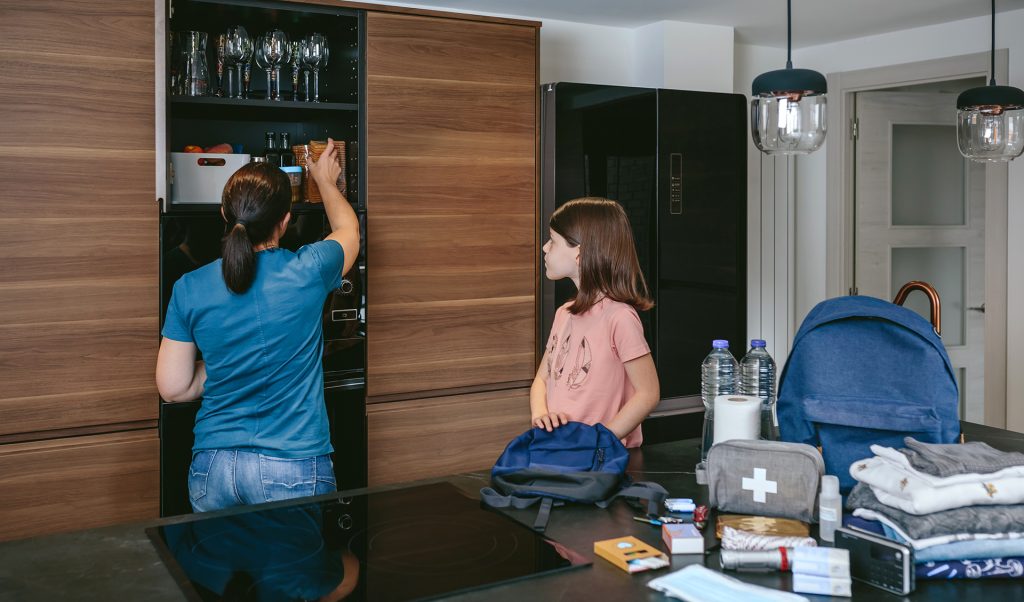Earthquakes are unpredictable natural disasters that can have devastating consequences. While everyone should be prepared for earthquakes, it’s crucial to consider the specific needs and challenges faced by individuals with disabilities. In this blog, we will explore earthquake readiness for people with disabilities and provide valuable tips on how to ensure their safety and support during seismic events.
Understanding Unique Challenges: People with disabilities encounter distinctive challenges when it comes to earthquake preparedness:
- Mobility Impairments: Individuals with mobility impairments may find it challenging to move quickly to a safe location or take shelter during an earthquake.
- Sensory Impairments: Deaf or blind individuals may require alternative methods of communication and notification during seismic events.
- Cognitive Impairments: People with cognitive impairments may struggle to comprehend emergency instructions or respond effectively during a crisis.
- Medical Needs: Individuals with medical conditions or those reliant on life-sustaining equipment may need specialized attention and resources during earthquakes.
- Communication Barriers: Effective communication during an emergency is vital, but individuals with a disability may face barriers hindering their ability to convey their needs or receive assistance.
Preparing for Earthquakes: To ensure the safety and well-being of people with disabilities during earthquakes, it’s essential to plan meticulously. Here are key steps to consider:
- Develop a Personalized Emergency Plan:
- Identify specific needs: Understand the unique requirements of the individual, including mobility aids, assistive devices, medications, and communication preferences.
- Establish a support network: Create a circle of trusted friends, family members, or caregivers who can provide assistance during emergencies.
- Create a communication plan: Ensure that the individual with a disability can effectively communicate their needs, especially if they have speech or hearing impairments.
- Assemble an Emergency Kit:
- Customize the emergency kit: Include essential items like medications, medical supplies, mobility aids, hearing aids, communication devices, and spare batteries.
- Maintain a written list (do not count on having the use of a smartphone) of essential contacts: Include contact information for healthcare providers, caregivers, Regional Center Service Coordinator and support networks in the emergency kit.
- Secure the Living Environment:
- Identify safe locations: Determine the safest spots within the home or workplace where a person with a disability can seek shelter during an earthquake.
- Secure heavy objects: Use anchors to prevent heavy furniture and objects from falling during tremors.
- Practice Evacuation Plans:
- Conduct drills: Regularly practice evacuation routes and procedures with the individual with a disability and their support network.
- Assess transportation options: Ensure accessible transportation is available for evacuation if required.
- Stay Informed:
- Subscribe to emergency alerts: Register for local emergency notification systems to receive real-time updates and alerts.
- Stay informed about news and weather updates, including earthquake forecasts and developments in your region.
- Utilize Community Resources:
- Connect with local disability organizations: These organizations often provide resources, support, and guidance for earthquake preparedness.
- Explore government assistance programs: Investigate programs that may offer financial aid or equipment to an individual with a disability during emergencies.

Preparing for earthquakes when you have a disability requires careful planning, effective communication, and a strong support network. By taking proactive measures to address the unique challenges faced by individuals with disabilities, we can ensure their safety and well-being in the event of an earthquake. Remember that preparedness is the key to resilience, and by working together, we can create a safer environment for all members of our community.
It’s not a matter of if, but when. Stay safe.
Share this Post




